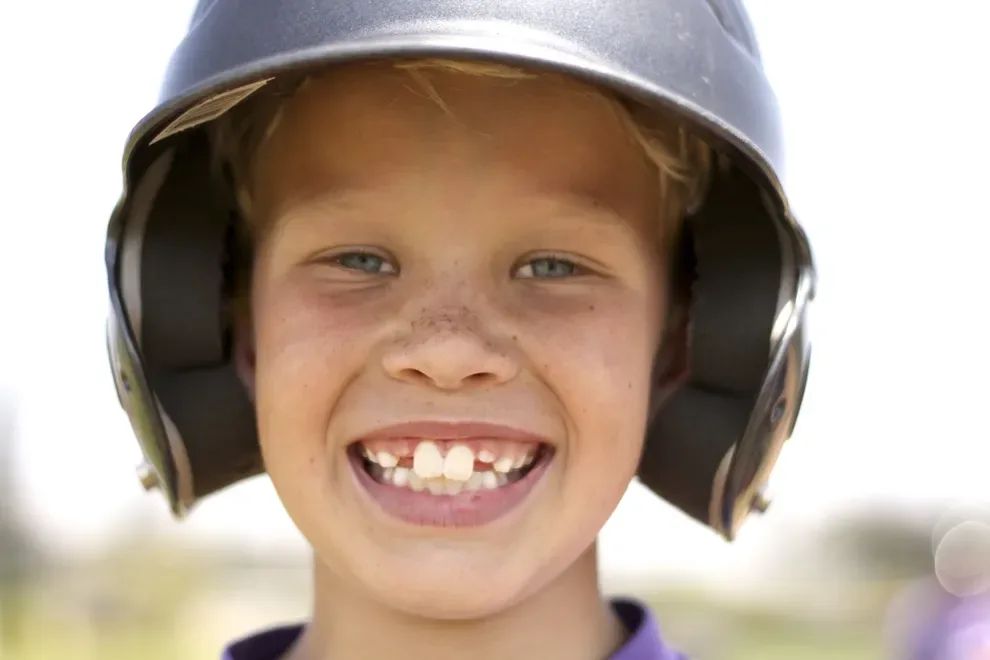Are Fillings in Baby Teeth Necessary? It Depends

Table of Contents
- Facts About Children & Cavities
- Are Fillings in Baby Teeth Really Necessary?
- Why Do All Cavities Likely Need Treatment?
- What is the Pediatric Filling Process?
- Prevention
- References
Humans are born with two sets of teeth. The first set, known as deciduous teeth, or baby teeth, erupt during infancy. They're later replaced by the adult teeth, or permanent teeth, between the ages of 6 and 12.
Even though your child won't keep their baby teeth forever, these teeth are important. They allow children to eat and speak clearly, and they serve as placeholders for the adult teeth. As such, baby teeth require good care. If your child develops cavities in their baby teeth, those cavities usually need to be filled.
Facts About Children and Cavities
Cavities occur because of the overabundance of bacteria in the mouth. These oral bacteria feed on sugars, then they secrete acidic waste substances that eat away at the tooth enamel over time.
There’s nothing unusual about finding cavities in baby teeth.
According to the CDC, 20 percent of children ages 5 to 11 have at least one untreated cavity.
As in adults, tooth decay brings negative effects to children. It causes pain, affects speech, and may cause children to miss school.
Luckily, cavities in the baby teeth are treatable. There's also a lot you can do to prevent childhood cavities in the first place.
Are Fillings in Baby Teeth Really Necessary?
Sometimes parents assume that because their child is going to lose their baby teeth, cavities in those teeth don't require treatment. However, dentists almost always recommend filling cavities in baby teeth for the following reasons:
Cavities in baby teeth cause pain, which makes it hard for your child to chew and speak
Children with dental pain tend to earn lower grades than their peers
Allowing tooth decay to perpetuate in childhood increases the risk of decay in the adult teeth
Untreated cavities can lead to dental abscesses and more serious infections
Fillings stop the decay process, ensuring the baby tooth stays in the mouth to guide the adult tooth into place
Why Do All Cavities Likely Need Treatment?
Occasionally, a dentist may note a cavity in a baby tooth that your child is about to lose in the next few months. They may decide it is unnecessary to fill the tooth because your child is going to lose it so soon. But such a stance is an exception. In almost all cases, dental cavities in baby teeth need to be treated.
If a cavity in a baby tooth is not filled, decay will spread. Eventually, the tooth may weaken to the point that it needs to be extracted. Then your child may need to wear a tooth spacer to maintain the empty space for the adult tooth to emerge. Filling a cavity is simpler and less expensive than having your child fitted for a tooth spacer.
Untreated cavities also cause bad breath. They may cause dark spots on the teeth that make your child feel self-conscious, and as mentioned above, they are painful. Treatment eliminates these problems.
What Is the Pediatric Dental Filling Process?
The process of having a cavity filled is simple from the patient's perspective, even when that patient is a child. Most pediatric dentists start by giving the child some laughing gas or a mild oral sedative to help them relax. The sooner you have a cavity treated, the quicker and less painful the filling process will be.
Your dentist may recommend the use of nitrous oxide before injecting your child's gums with a local anesthetic, numbing the tooth and the surrounding area. The dentist will then use a drill to remove all of the decayed tooth materials.
Then, they will inject a hard, composite resin into the hole. This is the filling. It protects the tooth and keeps it healthy until your child loses it naturally.
Prevention
Even better than having cavities filled is preventing them in the first place. The best way to prevent cavities is with good oral hygiene habits.
Help your child brush their teeth with fluoride toothpaste at least twice a day, then show them how to use dental floss to remove plaque from between the teeth.
Take your child to the dentist twice a year for cleaning and a checkup. This way, if they do develop cavities, the dentist will find them early when they are easiest to treat. Sealants can help prevent cavities in the back molars.
Limiting your child's sugar intake also helps prevent cavities. Cut back on soda, juice, and candy, and offer tooth-healthy snacks like cheese, fresh veggies, and nuts.
Healthy teeth make for a healthy child. Take good care of your child's baby teeth, and if they do develop any cavities, work with a pediatric dentist to have them filled as soon as possible.
